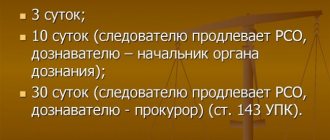Lawyer Spiridonov M.V.
01/22/2017 0 Comments Law practice Spiridonov M.V., Criminal cases
lawyer in Novosibirsk, lawyer under Art. 318 of the Criminal Code of the Russian Federation, lawyer under Art. 319 of the Criminal Code of the Russian Federation, criminal lawyer, insult to a government official, use of violence against a government official, Art. 318 Criminal Code of the Russian Federation, Art. 319 Criminal Code of the Russian Federation
In this article, using the example of a specific case from my legal practice, the organization of defense in a criminal case under Part 2 of Art. 318 of the Criminal Code of the Russian Federation – the use of violence dangerous to the life and health of a government representative, and Part 1 of Art. 319 of the Criminal Code of the Russian Federation - insulting a representative of authority.
The plot of the case.
In the summer of 2016, I accepted an assignment to protect the principal under Part 2 of Art. 318 of the Criminal Code of the Russian Federation, art. 319 of the Criminal Code of the Russian Federation. I have previously had to defend a client for a similar act, only under Part 1 of Art. 318 of the Criminal Code of the Russian Federation.
The previous criminal case against the principal was terminated due to the reconciliation of the parties under Art. 25 of the Code of Criminal Procedure of the Russian Federation, and accordingly did not entail legal consequences. However, this is only legally, but in fact, the previous fact of criminal prosecution, and even for a similar crime, could significantly influence the further course of the case. This made the defense more difficult.
Having familiarized myself with the materials that could have been provided to me at the stage of the preliminary investigation, having talked with the defendant, a picture of what happened was outlined and it was as follows.
One day, the defendant was going to his dacha; together with a friend, they sat on the street and waited for a taxi. At that moment, a police officer approached them and demanded to provide documents. The reason for presenting the demand for documents was that the defendant was intoxicated and behaved noisily on the street. The defendant did not have documents with him, which he explained to the police officer. The police officer demanded that the client accompany him to the police station to establish his identity. The latter began to explain to him that a taxi would soon come for him and he would go to his dacha, that he was not on the wanted list, etc.
However, the police officer persistently continued to demand that the client proceed to the police station (as it was later established, the delivery to the police station was due to the need to compile administrative material in connection with the client being in a public place while intoxicated). The defendant decided to leave the place where the conversation was taking place, to which the officer grabbed him by the arm and began to push him into the car. The police officer placed a handcuff bracelet on the defendant's left hand and attempted to place a second bracelet on his right hand.
The defendant began to disobey the actions of the police officer, to which the latter used a wrestling technique against the defendant, causing them to fall together on the asphalt. As a result of the fall, the defendant ended up on the bottom and the officer on top, after which the police officer managed to put a bracelet on the defendant’s other hand and take him to the police station.
Upon arrival at the police department, the officer sought medical attention and was diagnosed with a fracture of the fifth metacarpal bone of his left hand. According to the police officer, this turning point resulted from the actions of my client, who, among other things, insulted a police officer during the events that took place, which served as the basis for initiating a criminal case under Part 2 of Article 318 of the Criminal Code of the Russian Federation and Article 319 of the Criminal Code of the Russian Federation.
Such evidence included in particular:
— Written apologies brought by my client at the victim’s place of employment;
— Documents confirming that the client is engaged in socially useful work;
— All kinds of positive characteristics (from the place of work, from the place of residence);
It should be taken into account that in accordance with Part 3 of Art. 60 of the Criminal Code of the Russian Federation, when assigning punishment, the nature and degree of public danger of the crime and the identity of the perpetrator, including circumstances mitigating and aggravating the punishment, as well as the impact of the imposed punishment on the correction of the convicted person and on the living conditions of his family are taken into account.
In order to establish the circumstances of the impact of the punishment on the living conditions of my client, as well as the circumstances characterizing his personality, members of his family were questioned as witnesses.
The collected evidence made it possible to widely reveal the positive aspects of the personality of the person brought to criminal responsibility, as well as to establish circumstances mitigating his guilt.
The establishment of such circumstances is essential when deciding on the termination of a criminal case, both on the grounds provided for in Art. 25 of the Code of Criminal Procedure of the Russian Federation - in connection with the reconciliation of the parties, and on the basis provided for in Art. 28 of the Code of Criminal Procedure of the Russian Federation - in connection with active repentance.
At the preliminary hearing of the criminal case, a petition was filed to terminate the criminal case due to active repentance, but this petition was not granted by the court.
After this, additional attempts were made to reconcile with the victim, to which the latter eventually agreed. As compensation for the damage caused, the defendant purchased damaged elements of the victim’s uniform, photographed these items and things, after which a petition was filed with the court to terminate the criminal case in connection with the reconciliation of the parties.
The state prosecutor categorically objected to the satisfaction of the stated petition, pointing out that reconciliation under Part 1 of Art. 318 of the Criminal Code of the Russian Federation is impossible due to the fact that the harm was actually caused to the state in the person of a government representative.
As objections to the arguments of the state prosecutor, I presented the arguments that I made during the analysis of the provisions of the criminal and criminal procedural laws regarding the possibility of terminating the criminal case for the crime under consideration in connection with the reconciliation of the parties, namely:
1. Analysis of the provisions of the substantive law of Art. 76 of the Criminal Code of the Russian Federation, regulating the grounds for exemption from criminal liability, and analysis of the norms of procedural law, Art. 25 of the Code of Criminal Procedure of the Russian Federation, which regulates the procedure for terminating a criminal case in connection with the reconciliation of the parties, does not contain restrictions for terminating criminal cases for crimes provided for in Chapter 32 of the Criminal Code of the Russian Federation “Crimes against the order of administration.”
2. From the provisions of Art. 76 of the Criminal Code of the Russian Federation and Art. 25 of the Code of Criminal Procedure of the Russian Federation it follows that reconciliation between the defendant and the victim is possible for any crime of minor and medium gravity, if the defendant is brought to criminal responsibility for the first time (for more details on who falls under this concept, see paragraph 2 of the Resolution of the Plenum of the Supreme Court of the Russian Federation dated June 27, 2013 No. 19 “On the application by courts of legislation regulating the grounds and procedure for exemption from criminal liability”). Reconciliation depends on the will of the victim, as well as on the agreement between the parties on ways to make amends for the harm caused to the victim.
3. Within the meaning of the law, victims under Part 1 of Art. 318 of the Criminal Code of the Russian Federation recognizes a representative of the authorities, that is, directly the individual to whom violence was applied that is not dangerous to life and health, and the current norms of criminal and criminal procedural laws do not contain any restrictions in the application of the provisions of the law on reconciliation of the parties depending depending on the type of criminal prosecution.
Thus, the law does not provide restrictions for the termination of criminal cases on charges of committing crimes under Part 1 of Art. 318 of the Criminal Code of the Russian Federation.
Other conditions necessary to terminate a criminal case on the grounds provided for in Art. 25 of the Code of Criminal Procedure of the Russian Federation - in connection with the reconciliation of the parties, were observed, the court, taking into account the arguments given by me and the state prosecutor, decided a criminal case against my client accused of committing a crime under Part 1 of Art. 318 of the Criminal Code of the Russian Federation, terminate on the grounds provided for in Art. 25 of the Code of Criminal Procedure of the Russian Federation - in connection with the reconciliation of the parties, thus freeing the latter from criminal liability. The set goal of protection was achieved in full.
The author of the article is lawyer Mikhail Vladimirovich Spiridonov.
Line of defense.
In any criminal case, it is important to determine the key point, based on which it is necessary to build a defense position. In the criminal case under consideration, such a key point was the defendant’s intent to use violence against a representative of the authorities, or, more precisely, the absence thereof.
From the subjective side, Part 1 and Part 2 of Art. 318 of the Criminal Code of the Russian Federation is characterized by guilt in the form of direct intent, that is, a person must be aware of the social danger of his actions, foresee the possibility or inevitability of socially dangerous consequences and desire their occurrence.
Even if we do not consider the actions of the police officer in the described situation from the point of view of legality and assume that they were lawful, then the most that the defendant did was express disobedience to a representative of the authorities. The defendant and the police officer fell onto the asphalt together, and the cause of the fall was not the actions of the defendant, but the actions of the police officer in the form of using a wrestling technique.
By coincidence, the officer’s hand, as a result of using a wrestling technique and falling, ended up under the defendant’s body. Taking into account the anthropometric data of the defendant and the police officer, who was significantly larger in build and weight, and also taking into account the laws of physics, it follows that the body on top will press down on the body below, and given the physical parameters of the participants in the event, it is quite possible that bodily harm will occur to a police officer.
Only such injuries cannot be in a cause-and-effect relationship with the actions of the defendant, since they arose for another reason not related to the actions of the defendant, and accordingly his intent to use violence is excluded.
This circumstance was a fundamental element of the defense in the described criminal case.
As for the act under Art. 319 of the Criminal Code of the Russian Federation, expressed in insulting a government official, in the criminal case under consideration, this act could have “technical significance.” For those who are not aware of the peculiarities of the criminal process, I will explain that we do not like to completely stop criminal cases and acquit them, this is the reality. Act under Art. 319 of the Criminal Code of the Russian Federation in this case made it possible not to completely terminate the criminal case, but to complete it purely within the framework of an insult, which the client did not dispute if the infliction of violence was not confirmed.
Initially, the victim’s finger fracture was confirmed by the presence of medical documents, but during the preliminary investigation, a forensic medical examination was carried out, which did not confirm the presence of a fracture. So a criminal case under Part 2 of Art. 318 of the Criminal Code of the Russian Federation was reclassified to Part 1 of Art. 318 of the Criminal Code of the Russian Federation, which already made the defendant’s fate easier, since Part 1 of Art. 318 of the Criminal Code of the Russian Federation belongs to the category of crimes of moderate gravity, while part two of this article belongs to the category of serious crimes.
Further, the client was charged under Part 1 of Art. 318 of the Criminal Code of the Russian Federation, art. 319 of the Criminal Code of the Russian Federation.
The charge brought simultaneously under Part 1 of Art. 318 of the Criminal Code of the Russian Federation and Art. 319 of the Criminal Code of the Russian Federation, raised doubts about its legality, since the alleged infliction of violence and insult occurred, according to the prosecution, at the same time, in the same place, one preceded the other. Both incriminated actions are interrelated; accordingly, all actions must be assessed as a single crime.
I decided to bring this position of the defense to the investigation by raising appropriate objections. The objections contained the idea regarding the illegality of simultaneously qualifying the defendant’s actions under two offenses (Part 1 of Article 318 of the Criminal Code of the Russian Federation and Article 319 of the Criminal Code of the Russian Federation), citing the above arguments about the simultaneous commission of the incriminated acts, and accordingly the need to qualify under the most serious offense .
The purpose of such objections was aimed at ensuring that the prosecutor, and subsequently the court, could think about the idea presented, and if other defense arguments were rejected, at least exclude the charge under Article 319 of the Criminal Code of the Russian Federation.
The investigative authorities, as expected, did not rule out charges under Art. 319 of the Criminal Code of the Russian Federation and the criminal case with an indictment went to court with the same amount of charges.
Article 318 of the Criminal Code of the Russian Federation. Is it possible to reconcile with a representative of government?
Dear colleagues, dear readers! The purpose of this publication is to analyze the norm of Article 318 of the Criminal Code of the Russian Federation - the use of violence against a representative of the authorities with a view to the possibility of terminating a criminal case on charges of committing an act provided for in the first part of this article on the basis of Art. 25 of the Criminal Procedure Code of the Russian Federation - in connection with the reconciliation of the parties, using the example of a specific case from judicial practice. Issues. Recently, judicial practice under Art. 318 of the Criminal Code of the Russian Federation – the use of violence against a representative of the authorities, follows the path of tightening the imposed punishment. This conclusion was made based on the analysis of a number of sentences and their comparison with previously issued judicial acts for similar crimes. It can be assumed that, on the one hand, this is motivated by the preventive function of the criminal law, on the other hand, it is dictated by the desire of the law enforcement officer to protect the interests of government officials from illegal attacks.
In addition, there is widespread court practice related to the issuance of decisions to refuse requests to terminate criminal cases in connection with the reconciliation of the parties on charges of committing acts provided for in Part 1 of Art. 318 of the Criminal Code of the Russian Federation.
Refusing to satisfy this petition, the courts note that the object of the attack under Art. 318 of the Criminal Code of the Russian Federation is not only an individual - a representative of the authorities, but also social relations that ensure the normal activities of authorities and representatives of the authorities. There are motivations that indicate that in fact the victim is the state represented by a representative of the authorities, and the health and life, honor and dignity of the citizen as an official and representative of the authorities are only an additional object of encroachment, and therefore it is not possible to terminate the criminal case according to the composition in question possible.
Thus, a certain substitution of concepts occurs, and the question becomes who in this case is the victim - the state or the representative of the government against whom the attack was committed.
The plot of a specific case. I carried out protection under Part 1 of Art. 318 of the Criminal Code of the Russian Federation, the principal did not dispute the fact of committing an unlawful act and wanted to suffer the least severe punishment for what he had done. At the end of the criminal investigation, it was not possible to reach a consensus regarding the documented fact of reconciliation with the victim - a police officer. In this connection, after familiarization with the materials of the criminal case, a petition was filed to terminate the criminal case on the grounds provided for in Art. 28 of the Code of Criminal Procedure of the Russian Federation - in connection with active repentance.
Of course, an unfounded petition would obviously be doomed to failure; accordingly, during the preliminary investigation it was necessary to confirm the fact of active repentance for committing a crime. For this purpose, written apologies were written, sent to the victim’s place of work, for delivery by the immediate superior, which, in particular, reflected that the accused sincerely repents of his actions and is ready to make amends for both material and moral damage.
At the preliminary hearing stage, the court, having considered the petition to terminate the criminal case due to active repentance, refused to satisfy it.
After this, it was decided to once again try to reconcile with the victim, to which the latter eventually agreed, asking him to compensate for the harm caused, as they say in civil law - in kind, that is, to purchase the damaged elements of the uniform. The defendant purchased the corresponding elements of the damaged uniform, photographed them, and gave them to the victim.
Next, a petition was filed to terminate the criminal case in connection with reconciliation with the victim.
After the announcement of the petition, having ascertained the will of the victim and the position of the defense, the court asked the state prosecutor for his opinion. The latter very actively objected to the granting of the petition and the termination of the criminal case, arguing that it was impossible to reconcile in this category. In general, the position of the state prosecutor was approximately the same as indicated at the beginning of the article.
As a result, the court accepted the arguments of the defense and dismissed the criminal case on the grounds provided for in Art. 25 of the Code of Criminal Procedure of the Russian Federation - in connection with the reconciliation of the parties.
Summary. The purpose of this article was to analyze the provisions of the Criminal Code of the Russian Federation for the possibility of terminating a criminal case under Part 1 of Art. 318 of the Criminal Code of the Russian Federation in connection with the reconciliation of the parties. Accordingly, as a conclusion, I would like to reflect those aspects that were used in preparation for the defense, and indicate the possibility of terminating the criminal case on the specified basis:
1. Analysis of the provisions of the substantive law of Art. 76 of the Criminal Code of the Russian Federation, regulating the grounds for exemption from criminal liability and analysis of the rules of procedural law, Art. 25 of the Code of Criminal Procedure of the Russian Federation, which regulates the procedure for terminating a criminal case in connection with the reconciliation of the parties, does not contain restrictions for terminating criminal cases for crimes provided for in Chapter 32 of the Criminal Code of the Russian Federation “Crimes against the order of administration.”
2. From the provisions of Art. 76 of the Criminal Code of the Russian Federation and Art. 25 of the Code of Criminal Procedure of the Russian Federation it follows that reconciliation between the defendant and the victim is possible for any crime of minor and medium gravity, if the defendant is brought to criminal responsibility for the first time (for more details on who falls under this concept, see paragraph 2 of the Resolution of the Plenum of the Supreme Court of the Russian Federation dated June 27, 2013 No. 19 “On the application by courts of legislation regulating the grounds and procedure for exemption from criminal liability”). Reconciliation depends on the will of the victim, as well as on the agreement between the parties on ways to make amends for the harm caused to the victim.
3. Within the meaning of the law, victims under Part 1 of Art. 318 of the Criminal Code of the Russian Federation recognizes a representative of the authorities, that is, directly the individual to whom violence was applied that is not dangerous to life and health, and the current norms of criminal and criminal procedural laws do not contain any restrictions in the application of the provisions of the law on reconciliation of the parties depending depending on the type of criminal prosecution.
Thus, the law does not provide restrictions for the termination of criminal cases on charges of committing crimes under Part 1 of Art. 318 of the Criminal Code of the Russian Federation.
Familiarize yourself in more detail with the legal aspects and legal analysis on the issue of termination of a criminal case in connection with the reconciliation of the parties on charges of committing a crime under Part 1 of Art. 318 of the Criminal Code of the Russian Federation, can be found on my website using the link here.
Judicial review.
The established judicial practice on crimes of this kind in the Novosibirsk region indicates that recently convicted persons have been sentenced to actual imprisonment. Considering the fact that the defendant committed a similar act after a short time, the latter, in the event of a guilty verdict, could most likely be sentenced to actual imprisonment.
The punishment under Article 319 of the Criminal Code of the Russian Federation does not provide for deprivation of liberty as such, and the fine provided for by the sanction of this article would suit the defendant quite well. According to the position agreed with the client, the latter did not deny the fact of the insult, but denied the presence of intent to cause violence to the police officer.
During the trial of the case, the intent to use violence was not proven in any way. In fact, everything was established the same as during the investigation. The defendant and the victim fell together, the policeman's hand was under the defendant's body. The victim claimed that the defendant forcefully pressed his hand to the asphalt. However, in response to clarifying questions from the defense, the victim said that he could not unequivocally say whether the defendant pressed his hand with force intentionally or accidentally. Direct evidence of the presence of direct intent, and, accordingly, the subjective side in the defendant’s actions to inflict violence against a representative of the authorities was not established during the trial.
Summary of the case.
The court qualified the defendant’s actions as insulting a government official and inflicting violence on him under one article 318 of the Criminal Code of the Russian Federation due to the simultaneous commission of the acts and imposed a penalty of a fine of 30,000 rubles. This punishment completely satisfied the defense, since it corresponded to the sanction of the act under Article 319 of the Criminal Code of the Russian Federation, the guilt of which the defendant admitted.
At the end of the consideration of this case, I would like to note that even though a guilty verdict was passed against the defendant under Part 1 of Art. 318 of the Criminal Code of the Russian Federation, in fact, for him such a sentence became a kind of “alternative reality” of an acquittal, since the imposed punishment was exactly the same as if he had been sentenced only for insult under Art. 319 of the Criminal Code of the Russian Federation. The main thing that the client feared most – real deprivation of liberty – did not happen. The verdict passed by the court was a “Solomon’s decision” in such an ambiguous situation; neither the prosecution nor the defense wanted to appeal such a verdict.
The author of the article is lawyer Mikhail Vladimirovich Spiridonov.
Let's consider the composition of Part 1 of Article 318 of the Criminal Code of the Russian Federation:
- Object: normal activities of government bodies. An additional object is the health and bodily integrity of government officials.
- Objective side: violence (or threat of violence), which does not pose a danger to life and health, directed against a government official in connection with the performance of his official duties. In addition, Part 1 of Article 318 of the Criminal Code of the Russian Federation is applied if violence (threat of violence) is directed against relatives of a government representative. Violence is understood as the commission of actions that caused physical pain to the victim, but did not result in loss of ability to work or permanent health problems.
- Subject: a sane individual over 16 years of age.
- Subjective side: direct intent. The purpose of committing this crime is to create obstacles to the performance of official duties by a representative of the authorities.
A representative of government should be understood as an official of law enforcement or regulatory authorities, or another person vested with administrative powers in relation to entities not officially dependent on him.
Article 318 of the Criminal Code of the Russian Federation also contains Part 2, which establishes criminal liability for violence that poses a danger to life and health. We can talk about such violence if it caused serious or moderate harm to health, as well as minor harm, if it caused a short-term health disorder or caused a minor loss of ability to work. For example, serious harm to health includes loss of vision, speech, hearing, any organ, and facial disfigurement. The criteria for determining the severity of harm are stated in Order of the Ministry of Health and Social Development of the Russian Federation No. 194n dated April 25, 2008.





